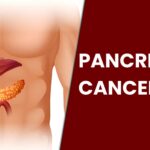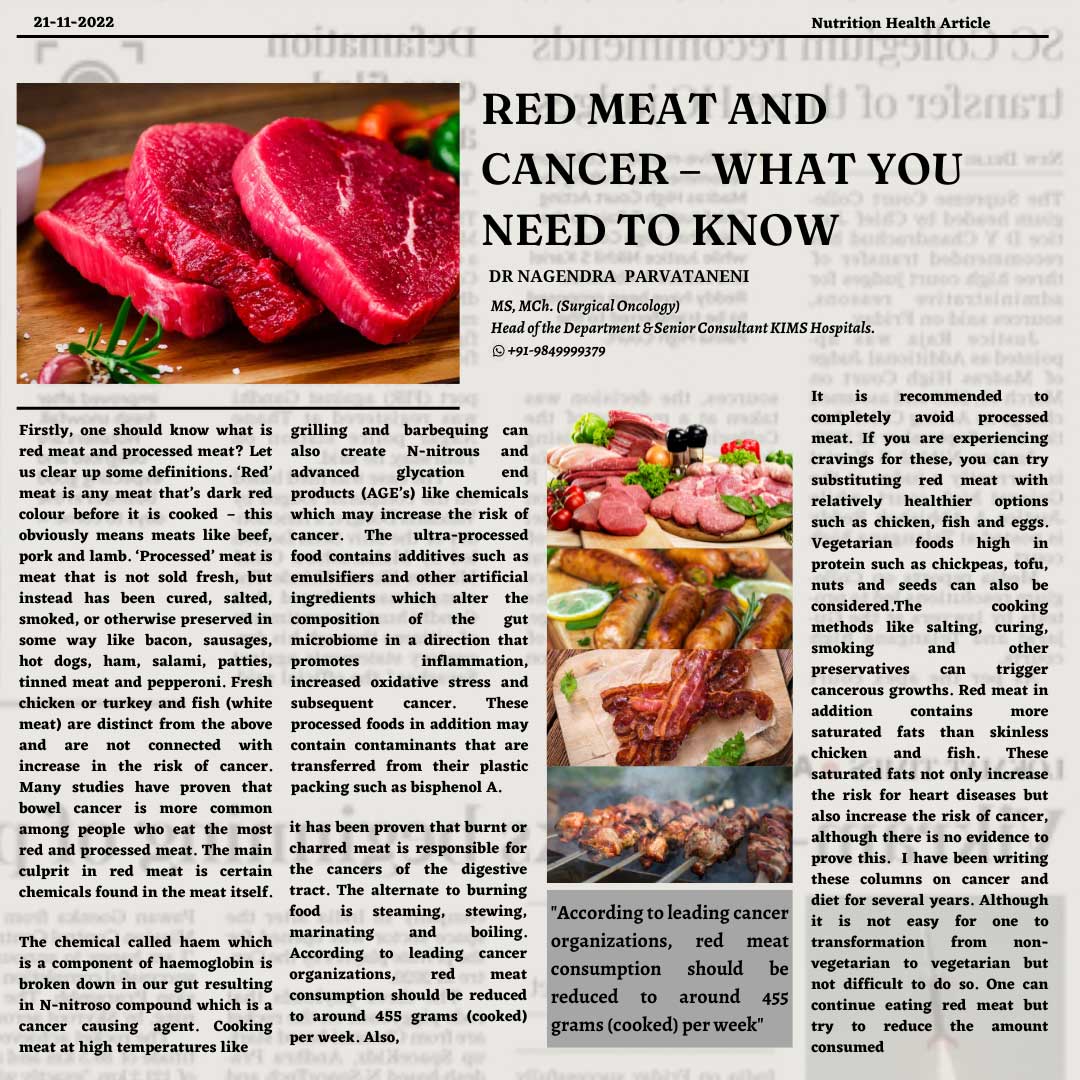Firstly, one should know what is red meat and processed meat? Let us clear up some definitions. ‘Red’ meat is any meat that’s dark red colour before it is cooked – this obviously means meats like beef, pork and lamb. ‘Processed’ meat is meat that is not sold fresh, but instead has been cured, salted, smoked, or otherwise preserved in some way like bacon, sausages, hot dogs, ham, salami, patties, tinned meat and pepperoni. Fresh chicken or turkey and fish (white meat) are distinct from the above and are not connected with increase in the risk of cancer. Many studies have proven that bowel cancer is more common among people who eat the most red and processed meat. The main culprit in red meat is certain chemicals found in the meat itself.The chemical called haem which is a component of haemoglobin is broken down in our gut resulting in N-nitroso compound which is a cancer causing agent. Cooking meat at high temperatures like grilling and barbequing can also create N-nitrous and advanced glycation end products (AGE’s) like chemicals which may increase the risk of cancer.
The ultra-processed food contains additives such as emulsifiers and other artificial ingredients which alter the composition of the gut microbiome in a direction that promotes inflammation, increased oxidative stress and subsequent cancer. These processed foods in addition may contain contaminants that are transferred from their plastic packing such as bisphenol A.
it has been proven that burnt or charred meat is responsible for the cancers of the digestive tract. The alternate to burning food is steaming, stewing, marinating and boiling. According to leading cancer organizations, red meat consumption should be reduced to around 455 grams (cooked) per week. Also,
“According to leading cancer organizations, red meat consumption should be reduced to around 455 grams (cooked) per week”
it is recommended to completely avoid processed meat. If you are experiencing cravings for these, you can try substituting red meat with relatively healthier options such as chicken, fish and eggs. Vegetarian foods high in protein such as chickpeas, tofu, nuts and seeds can also be considered.The cooking methods like salting, curing, smoking and other preservatives can trigger cancerous growths. Red meat in addition contains more saturated fats than skinless chicken and fish. These saturated fats not only increase the risk for heart diseases but also increase the risk of cancer, although there is no evidence to prove this. I have been writing these columns on cancer and diet for several years. Although it is not easy for one to transformation from non-vegetarian to vegetarian but not difficult to do so. One can continue eating red meat but try to reduce the amount consumed





